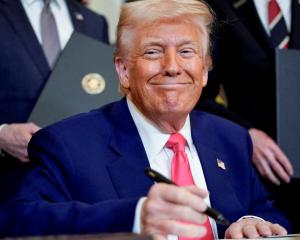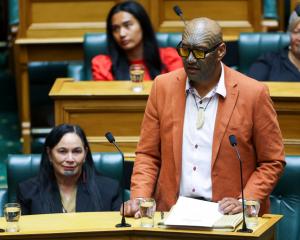What's in a name?
Shakespeare's oft-quoted words, as Juliet seeks to dissociate her lover Romeo from the house of her family's sworn enemy, have reverberated through literary history.
While Juliet sought to argue words do not matter, leaders in a very real and modern battlefield are seeking to reclaim a name they say is being dangerously tainted by misuse.
At the weekend, a war of words was declared against the self-proclaimed ''Islamic State'' extremists, who have captured wide swaths of Iraq and Syria and claimed an Islamic caliphate governed by their own strict interpretation of Sharia law.
There has been widespread concern over the swift ascension to power of the extremists, who began fighting in Syria against the rule of President Bashar Assad, and horror at their brutal methods - the targeted killings of minority religious groups, massacres, rapes and beheadings, including most recently American journalist James Foley.
They are widely viewed as more ambitious and aggressive than al Qaeda; even that terror organisation views them as extreme and has dissociated itself from the group.
The Dar al-Ifta, the top Islamic authority in Egypt, at the weekend launched a campaign for media to stop calling the group by its chosen name and refer to the group as ''al Qaeda Separatists in Iraq and Syria'', or the acronym ''QSIS''.
Egypt's President Abdel-Fattah el-Sisi, the Grand Mufti of Saudi Arabia, and the Organisation of Islamic Co-operation, based in Saudi Arabia which has 57 member states, have all similarly denounced the group and said its actions have nothing to do with the values of Islam.
The world certainly has a greater chance of stemming the tide of militants if opposition has strong leadership from Muslim countries.
Reaffirming peaceful messages is vital in a Western world forever shadowed by the September 11, 2001, terror attacks in the US, where fear, ignorance and retribution fuelled anti-Islamic sentiment.
The subsequent US-led invasions of Iraq and Afghanistan fanned the flames of jihadism and it is impossible for the West to think itself isolated from any such problems in the Arab world.
Indeed, the Islamic State is using the internet as a powerful tool, and drawing in foreign fighters.
Hundreds of British Muslims are believed to have joined the extremists, and a man with a British accent was behind Mr Foley's calculated and brutal slaughter.
British intelligence agencies have identified several suspects; one a 23-year-old London rapper, Abdel-Majed Abdel Bary, known to fellow Islamic State militants as ''Jihadi John''.
What drives these so-called ''homegrown'' terrorists is uncertain, and is likely a complex cocktail of factors.
It is terrifying they appear empowered by deeds which fill most people with revulsion.
The cult-like actions, plastered on the internet for the world to see, seem to have little to do with religion, but instead look an excuse for wholesale slaughter, driven by hate and anger, delusions of grandeur and a feeling of invincibility.
Recent US intervention, to help rescue thousands of Yazidis trapped by the militants' incursion, likely sparked Mr Foley's murder, but the US acted at Iraq's behest, to stop a massacre.
The pain felt by his family is unimaginable, and is at sharp contrast with the relief of the family of American journalist Peter Curtis, held by another group in Syria, but freed after apparent negotiation.
There are grave fears for the safety of other foreign journalists held in Syria, and differences of opinion about how to obtain their release.
Nature abhors a vacuum, and it is clear the extremists have gained ground in the wake of a divided Syria and an Arab and Western world too scarred by the recent past to intervene.
But the only hope of stemming the rising tide of extremism is unity.
Words are an important start in the collaborative effort.
Meaningful action will speak louder.
The United Nations has said the Islamic State must be defeated.
It must do everything in its power to enable that to occur, and all nations similarly have a duty to stop their citizens from contributing to such atrocities.












